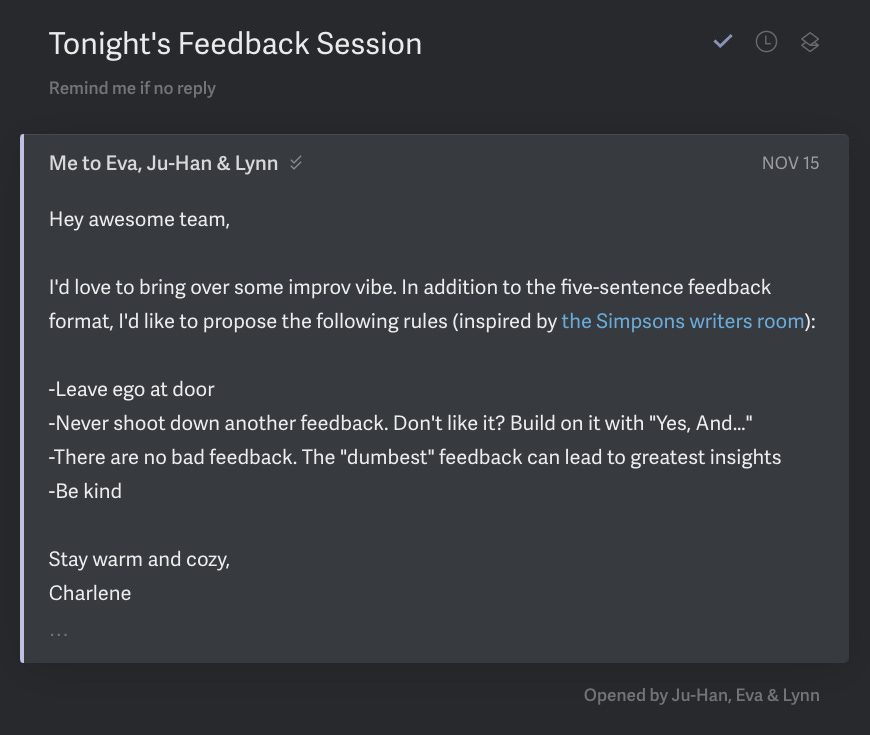Riding through the Storm
How might we nurture the cultures that allow good people to do what they do best?
I spent the last three weeks thinking about what to write today. I wanted to write about the team visioning exercise, but my hands were hesitant to type.
I reread the meeting notes and reflected on the other visioning sessions, which usually go like this: Team lead drafts and shares a vision. Everyone takes turns to relate, revise, and share how this vision impact their day to day. Team lead synthesizes everyone’s feedback and comes up with the next vision. Everyone nods their head to show that they feel heard. Team lead feels good about the workshop. Everyone assumes the unanimous sentiment is good enough.
It’s incredibly challenging to develop team bonds virtually, as many people are stressed about the prolonged screen sessions. It takes a lot of time and energy to create psychological safety and trust, so people end up picking the easy route: say white lies, do less, and avoid the uncomfortable truths at all cost.
However, the problems would not disappear. Over time, people would become less productive, team meetings would get stale, and business would eventually suffer. I can’t help but wonder how we can do better.
How might we tell the hard but important truth?
One of our team members recommended a simple exercise to cut through the BS: share one pet peeve you have about each team member with the following rules:
Write down one work-related pet peeve ahead of time.
Stick to the script when it’s your turn to share.
Use five simple sentences to describe the pet peeve.
One person talks at a time.
Wrap up by identifying action items or deferring to the next team meeting.
I am particularly excited about this method because it signals that we’re heading into the next phase. As Dr. Bruce Tuckman, a group dynamic professor, proposed in his team development study, teams often go through the form-storm-norm-perform cycle:
As much as we’d like to skip the storm, we need the turbulence to break down the old parts. Dr. Brené Brown called this phase the rumble of relationships. Pixar called this the second act of plays. We need this turbulent, rumbling, messy stage to test our courage, values, and group identity.
Burning down old behaviors
Our team had a candid feedback session this Monday.1 It was awkward, uncomfortable, and vulnerable. Some wanted to be constructive. Some struggled to make sense. Some wanted to take action. Some struggled to lean into the discomfort.
To respect my team’s privacy, I will not speak to their experiences. And to give you a good understanding, I’m going to share the full feedback I received:
Give team 24 hr to respond. I like to move fast, especially for small and reversible decisions. However, this behavior stressed the team out, so I promised to give the team 24 hours to respond.
Provide clear context and instructions. I like to share early ideas and expect the team to challenge me back. However, this behavior confused the team, so I promised to clarify whenever needed.
I was grateful to hear other tough feedback. It was the perfect “storm” I was looking for. The feedback challenged the way we worked and taught us how to be better. The feedback made us conscious about how we showed up and how we took care of each other. We were not skipping the second act—the second act that made a great play.
To the storm we dare to go through together,
Charlene
~I might only have one match but I can make an explosion





